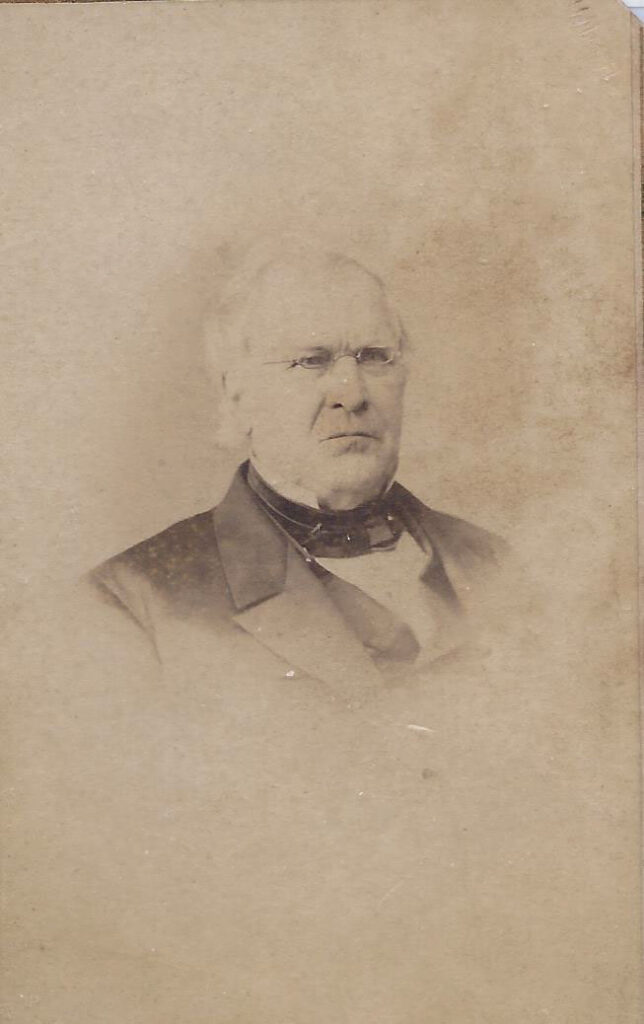Section #14 - Anti-Slavery sentiment grows due to the Fugitive Slave Act and Uncle Tom’s Cabin
Chapter 167: Fillmore Embarrassed By Failed Treason Trial In Christiana Runaway Case
September 11, 1851
Southerner Killed While Attempting To Capture His Run-Away Slaves
The Shadrach and Sims cases are barely concluded when another Fugitive Slave incident draws national attention, this time in the town of Christiana, Pennsylvania.
It involves four slaves who have escaped from the Maryland wheat farm of their owner, William Gorsuch, to a well-known runaway haven across the border in Pennsylvania overseen by William Parker, a freed mulatto.
Gorsuch secures warrants for all four and proceeds to Parker’s place along with his son and a U.S. Marshall. He is met there by a band of some thirty local blacks armed with weapons in the form of farm utensils, clubs and a few muskets.
After trying unsuccessfully to enlist a few whites in his posse, a fight breaks out in which Gorsuch is shot dead by Parker, and his son is wounded.
After the battle, Parker and the other runaways flee north through Rochester, New York, where Frederick Douglass helps them on their way to Canada.
December 11, 1851
The Attempt To Convict The Resisters Of Treason Fails Miserably
When news of this “Christiana Riot” reaches Washington, Fillmore decides to make an example of those involved in the incident by charging them all with the capital crime of treason.
He assigns the prosecutorial task over to U.S. Attorney John Ashmead, who tries at the time to convince the President that resistance to the law did not rise to the level of open warfare against the country. But neither Fillmore nor Secretary of State Daniel Webster are deterred, so Ashmead proceeds.
An indictment is drawn up charging some 41 men – Parker and the other three runaways along with 36 other blacks and five whites – with treason.
The plan is to try them one at a time, and the administration forms a very large legal task force to build the cases.
The first defendant chosen is one Castner Hanway, a white man who apparently wanders into the scene of the battle by happenstance, and refuses to fight alongside Gorsuch when asked.
His trial begins on November 24, 1851.

The two week trial is held in federal court in Philadelphia and is presided over by Associate US Supreme Court Justice, Robert Grier, no friend of the anti-slavery proponents.
Seven different lawyers appear on the government side against five defense attorneys, including congressman Thad Stevens whose home district in Pennsylvania includes Christiana.
The prosecution establishes that Castner Hanway was present during the battle, but fails to show that he either intended, or actually did, take part in the battle.
The argument is so weak that when the lead defense lawyer, Theodor Cuyler, rises, he resorts to untarnished sarcasm to dash the charge of treason.
Treason shall consist only in levying war against the United States . Do the facts of the case sustain the charge? Sir-Did you hear it?
That three harmless, non-resisting Quakers, and eight-and-thirty wretched, miserable, penniless negroes, armed with corn-cutters, clubs, and a few muskets, and headed by a miller, in a felt hat, without a coat, without arms, and mounted on a sorrel nag, levied war against the United States. Blessed be God that our Union has survived the shock.
But the defense is not over, and a second attorney, Joseph Lewis, weighs in with a blistering attack on the Fugitive Slave Act which captures the attitude of northerners toward becoming “active slave catchers” for the South.
It ought always to be remembered, that this business of hunting down fugitives, is the business of the persons from whom they escape, peculiarly, and that we really have nothing to do with it. We have no interest in it-and if the scenes to which such man and woman hunting give rise, are revolting to the sensibilities of our people, it is too much to expect them to assist, and they cannot and will not be frightened into it by prosecutions for treason.
You may irritate and exasperate public feeling, but you cannot make active slave catchers of any respectable men in Pennsylvania, even by threats of the gallows.
If, therefore, the object of this prosecution is to drive our people into an active pursuit of such slaves as may happen to come into our State, it must fail. It cannot and ought not to succeed in the accomplishment of any such object. They will not chase frightened men and women, though they be black, from wood to wood, and from hill to hill, with fire arms and bludgeons, to the great alarm of peaceful neighborhoods, and the scandal of human society.
After a feeble attempt to point out that a U.S. Marshall was engaged and an American citizen died during the fight, the prosecution rests, and Justice Grier sounds the death knell for their narrative in his charge to the jury:
Without desiring to invade the prerogatives of the jury in judging the facts of this case, the Court feel bound to say, that they do not think the transaction with which the prisoner is charged with being connected, rises to the dignity of treason or levying war.
It takes the jury fifteen minutes to return to the court with an acquittal of Castner Hanway – and with that Fillmore’s crusade against the Christiana resisters comes to an end.
Perhaps both Fillmore and Webster gain some additional measure of Southern support from their prosecution, as they eye the 1852 election – but it comes at the expense of intensified anger and ridicule in the North. Thus it is Lewis again who has the last word here on the act itself.
You may irritate and exasperate public feeling, but you cannot make active slave catchers of any respectable men in Pennsylvania , even by threats of the gallows.